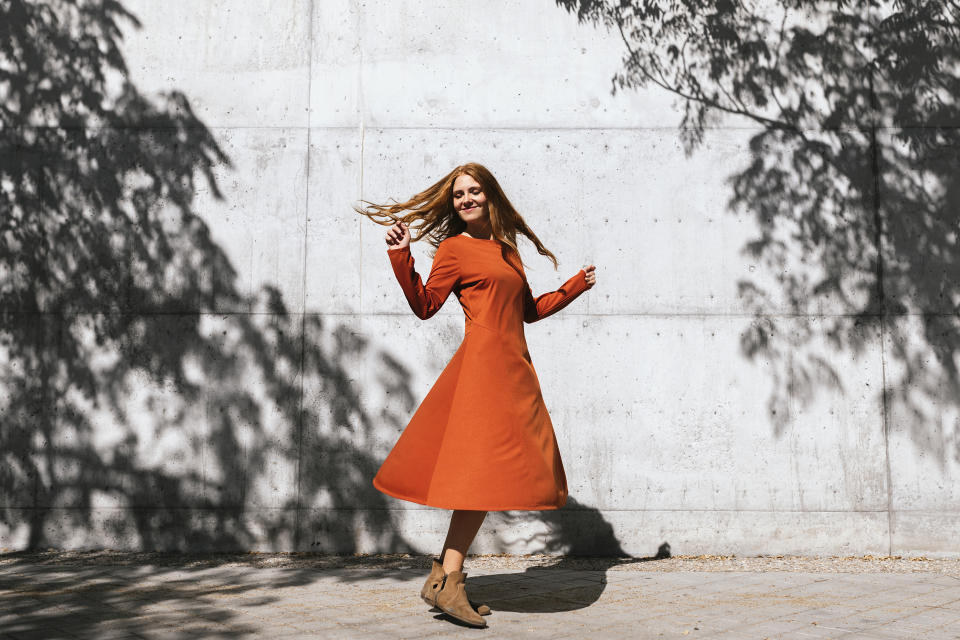How the 'solo' movement is rewriting misconceptions of 'sad, lonely' single life
It's projected that 1 in 4 millennials will never tie the knot — and that’s absolutely OK. Recent studies show that getting married isn't necessarily the key to happiness.
Single people tend to exercise more, have more friends and are more likely to volunteer in their communities than married folks.
Another study compared 10,000 women in their 70s and found that those who never married were physically healthier, less stressed and more optimistic than those who'd decided to get hitched.
That's why Peter McGraw, a 51-year-old behavioral economist, started an online community known as the "solo" movement that celebrates single life and rewrites the misconception that "singles are sad and lonely."

"Why is it that when you ask a married person, 'Are you happy?' and they say yes, you believe them," he told TODAY's Maria Shriver. "And then when someone asks a single person, 'Are you happy?' and they say yes, there’s still some doubt there? If someone says they’re happy, trust them — because there’s many ways to be happy in life."
What is the "solo" movement?
This movement aims to enforce the notion that people can find happiness and fulfillment outside of marriage. Whether they're divorced, widowed, casually dating or are unattached, there are many benefits that a person can experience while being on their own. However, McGraw says that there's a very big difference to being single and being "solo." He also notes that the "solo" movement is not anti-marriage.
Why is being "solo" so great?
Although McGraw says that a single person can sometimes feel "embarrassed" and "incomplete" with where they are in their lives, he notes that "a solo person feels proud of where they are in their life. They don’t feel less than in any way."
On his website, he adds that solos are also "adventurous" people who live life on the "edge and embrace re-invention," which can be refreshing since society creates "norms that push people to partnerships, whether it’s good for them or not."
Why are people finding solace in the "solo" movement?
In the United States of America, nearly 50% of adults (which is well over 125 million people) are single. However, McGraw says that should not be cause for concern. He turned his movement into a popular podcast, which has amassed a following of mostly women.

“I definitely think there’s more of a stigma for women especially,” proud “solo” Simone Johnson told Shriver about the pressures women face to settle down and set themselves up financially.
"People immediately default to, like, you’re not going to have enough money, and you’re not going to have enough things to sustain yourself or to go through retirement. And, like, there are all of these assumptions," she said.
At age 29, Johnson noted that the dating game has changed immensely from when her parents were her age.
"More and more people in my generation are single, and we are entering this sort of new way of approaching relationships," she said.
What do proud "solos" do?
According to McGraw, "solos" celebrate single life and everything it has to offer. Occasionally, he'll host a singles night for people who want to rejoice being unattached. But for Johnson, she likes to use her "solo" time for self-discovery.
"I started training Muay Thai, I started skateboarding, I started writing poetry," she said. "There’s definitely freedom in being alone."

